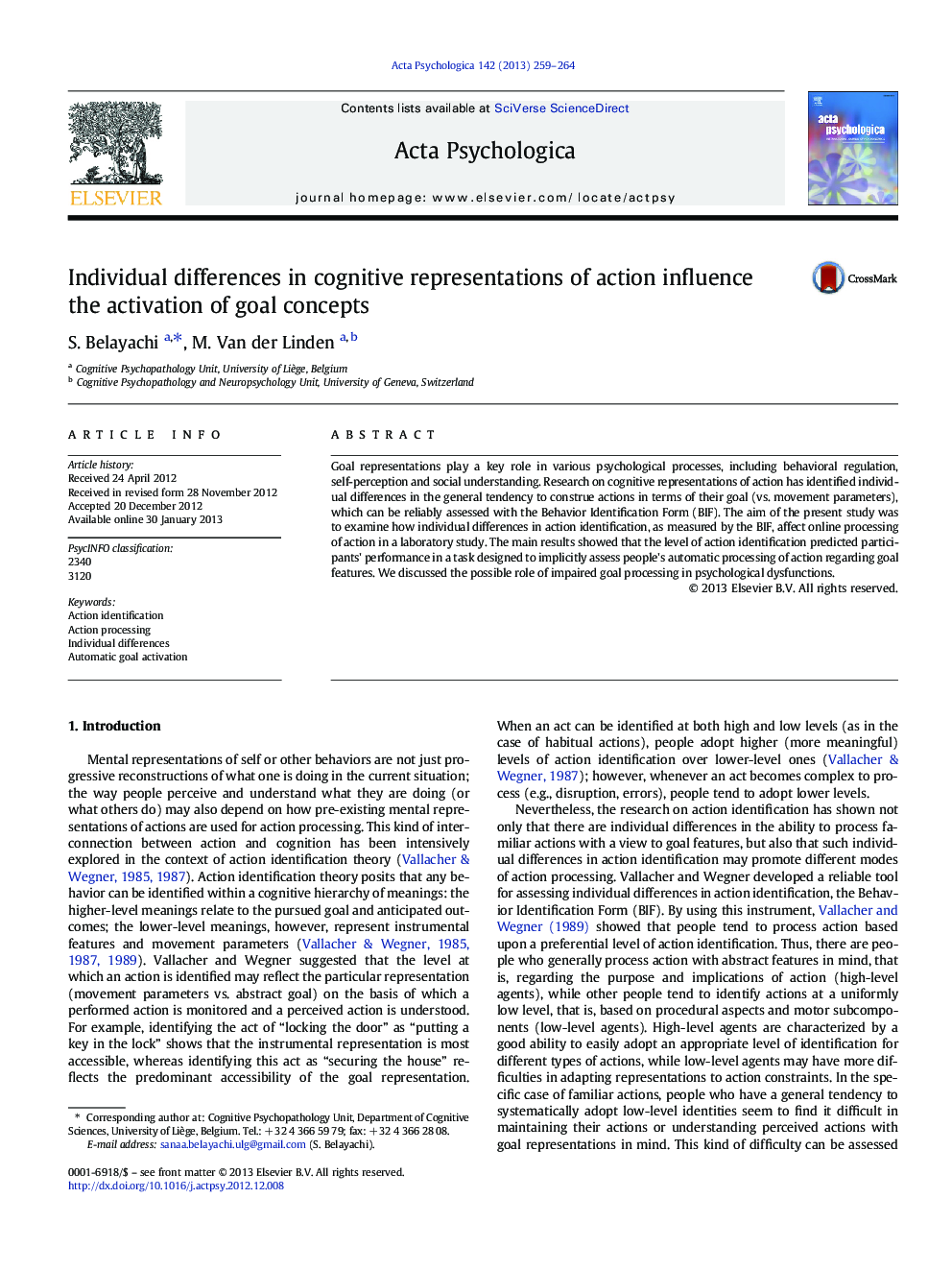| Article ID | Journal | Published Year | Pages | File Type |
|---|---|---|---|---|
| 919889 | Acta Psychologica | 2013 | 6 Pages |
Goal representations play a key role in various psychological processes, including behavioral regulation, self-perception and social understanding. Research on cognitive representations of action has identified individual differences in the general tendency to construe actions in terms of their goal (vs. movement parameters), which can be reliably assessed with the Behavior Identification Form (BIF). The aim of the present study was to examine how individual differences in action identification, as measured by the BIF, affect online processing of action in a laboratory study. The main results showed that the level of action identification predicted participants' performance in a task designed to implicitly assess people's automatic processing of action regarding goal features. We discussed the possible role of impaired goal processing in psychological dysfunctions.
► There are individual differences in goal processing. ► Low-level, as compared to high-level, agents may fail to process action regarding goal. ► We compared high and low-level agents on implicit activation of goal concepts. ► Differences in goal accessibility while reading action sentences were observed.
